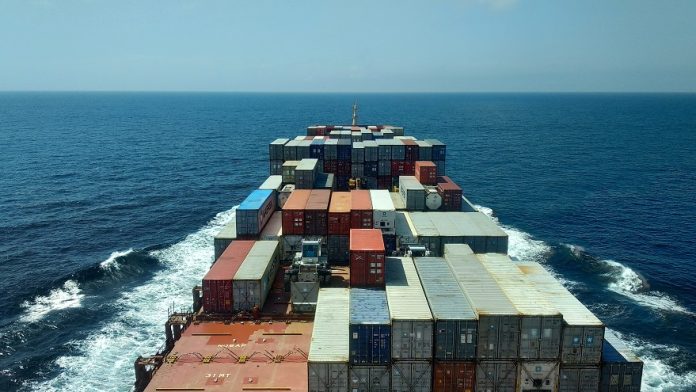Worldwide customers will likely suffer because of growing shipping expenses due to increased security risks in the Red Sea, which force shipping companies to reroute their vessels. Experts expect a significant effect on supply chains, especially in the consumer products and automobile industries.
Due to security concerns, major shipping corporations controlling over half of the worldwide container shipping market—AP Moeller Maersk, Hapag-Lloyd, CMA GGM, and the Mediterranean Shipping Company—have ceased operations in the Red Sea.
Companies have rerouted their ships in response to the recent missile attacks on vessels; some have chosen to take longer routes around the Cape of Good Hope, avoiding the Red Sea and the Suez Canal. The change in routes is expected to result in higher shipping costs since sea freight prices may rise due to longer trip times and increased demand for vessel capacity.
The industries that depend on timely shipments and consumer goods are expected to be most affected. Goods with a short shelf life may need help to transport due to the diversion to longer routes, which will likely cause problems for consumers.
An examination of industrial categories and product shipments reveals that many imports into Europe and Mena, such as organic chemicals, crude oil, refined and unrefined oil, and flat-rolled steel, are transported by sea from Asia and the Gulf. Some shipping companies have redirected their vessels in reaction to the situation, which has increased the cost of freight delivery by the ocean.
According to Peter Sand, Chief Analyst at Xeneta, rerouting via the Cape of Good Hope can increase sailing time by up to 10 days and massive fuel expenses. The continuous disruption and difficulties recovering from the pandemic highlight how vulnerable supply chains are.
‘Operation Prosperity Guardian,’ a coalition task force led by the US Secretary of Defense, aims to secure safe passage across the Red Sea and Gulf of Aden while countering Houthi threats. However, there is still uncertainty about these initiatives’ scheduled completion and outcome, which puts customers and the shipping sector at risk.
Source: www.marineinsight.com




































